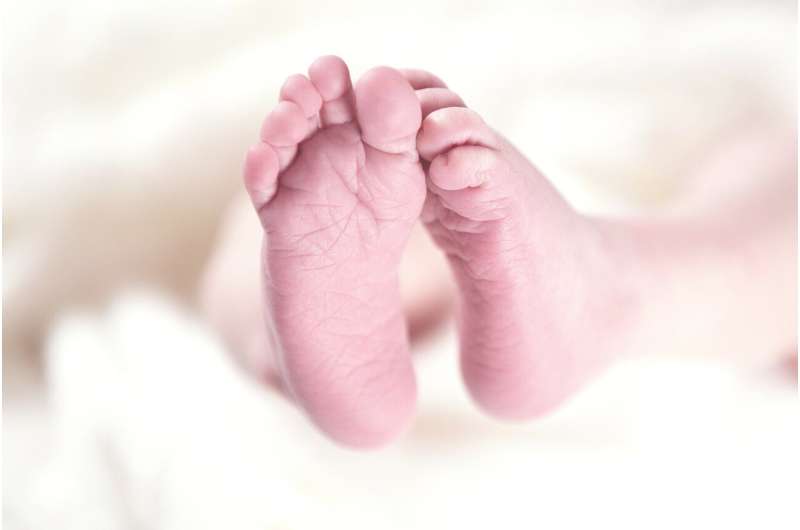For babies born with a rare immune deficiency, a unique new test to better target care

A new test developed at CHU Sainte-Justine in Montreal will enable better management of patients with severe combined immunodeficiency (SCID). The results of this work was presented Tuesday in the medical journal Blood Advances published by the American Society of Hematology.
Routine neonatal screening, although not yet available in Quebec, has led to an increase in the incidence of patients diagnosed with SCID in North America in recent years. This syndrome, a group of rare hereditary genetic disorders, is characterized by a total absence of immune system function, including an absence of T-lymphocytes, the white blood cells that play a crucial role in the body's immune defense. Without appropriate treatment, the disorder is fatal during the first months of life in the majority of cases.
Many of the genes involved in SCID have been identified, but clinicians sometimes come across patients who do not have any identified genetic abnormalities.
'Don't know the genetic cause'
"It's very frustrating. In about seven percent of patients, we can't provide optimal care because we don't know the genetic cause," said Dr. Elie Haddad, a pediatric immunologist at CHU Sainte-Justine and expert in the field of SCID.
"Depending on the nature of the mutated gene, there are two treatments for SCID: either a bone marrow transplantation or a thymus transplantation," said Haddad. "We still need to be able to identify the type of disease in order to choose the correct treatment option."
The gene involved can either disrupt hematopoietic stem cells in the bone marrow that consequently cannot naturally become T-cells, or it can affect the function of the thymus. The thymus is an organ in which immature white blood cells from the bone marrow 'learn' to become T-cells.
When doctors are unable to identify the real cause of the disorder, they usually turn to bone marrow transplantation. They do so for two reasons: First, transplants are easier to perform, and second, among the known genes, more are responsible for a dysfunction of the hematopoietic cells than for a malfunction of the thymus. However, knowing the origin of the disease is critical, because if it's the thymus that's not working properly, then the bone marrow transplant will have no effect, and vice versa.
"Given this clinical need, our goal was to create a functional test by taking a very small volume of peripheral blood rather than a bone marrow sample, which is a more complex process to perform in babies and more invasive than a simple blood test," said Panojot Bifsha, first author of the study.
In the laboratory, a very small number of stem cells is isolated from patients using a limited amount of blood (3 to 5 mL). A test with a 3-D culture that mimics the function of a human thymus is used to test this small number of cells, and a response is obtained in less than five weeks. If the results are normal, thymus transplantation is recommended, but if they are abnormal, then a bone marrow transplant is preferred.
'A relatively quick response'
"Our 3-D culture system is unique because it allows us to test a very small number of stem cells circulating in the blood and get a relatively quick response," Haddad said. "We received blood samples from all over North America, which allowed us to validate our method."
A similar study conducted with bone marrow samples at the U.S. National Institutes of Health (NIH) produced similar results, proving the reliability of the test developed at CHU Sainte-Justine from a blood sample. The U.S. study was also published today in Blood Advances.
As Quebec's hub of care and research for children with rare or serious diseases, CHU Sainte-Justine strives to stay one step ahead in research niches for which it is famous, such as the genetics of rare diseases and innovative treatments in precision medicine.
Additional studies will be required to further validate the latest test and allow it to be used on more patients.
More information: Panojot Bifsha et al. Diagnostic assay to assist clinical decisions for unclassified severe combined immune deficiency, Blood Advances (2020). DOI: 10.1182/bloodadvances.2020001736


















